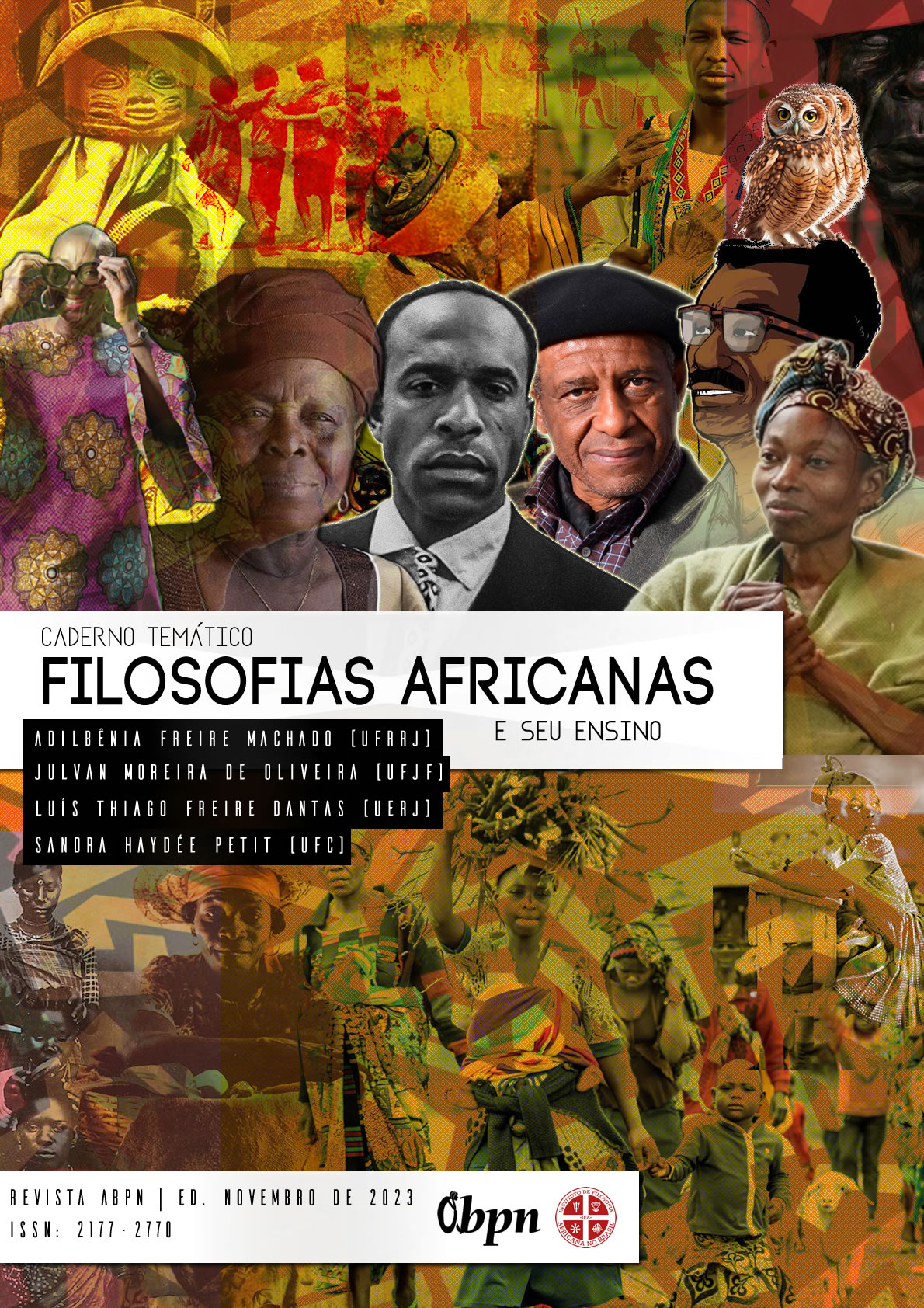SAGACITY PHILOSOPHY: contributions to the teaching of philosophy and discussion of the ethnic-racial issue
Main Article Content
Abstract
Abstract: This paper aims to analyze the sagacity philosophy and its contribution to the teaching and discussion of the ethnic-racial issue. The sagacity philosophy is a reflective analysis and consideration of the thinking of Africans known as guardians of wisdom, knowledge, and rigorous critical thinking. In this case, it does not involve customs, general worldviews, myths and folk tales. This philosophy arose from Oruka's reaction to the position that Europeans adopted on Africa, that is, Africans are not able to reflect in philosophical terms. In this framework, the sage philosophy aims to repudiate this belief. Although the work presents some tendencies of African philosophy, it problematizes the sagacity philosophy and its contribution to education. Thus, we conclude that the sagacity philosophy can be one of the instruments of resistance in the affirmation of the teaching of Afro-Brazilian culture in schools, contributing to a less hostile environment to teaching about Africa.
Article Details

This work is licensed under a Creative Commons Attribution 4.0 International License.
Copyright Statement
- Authors retain copyright and grant the journal the right of first publication, with work simultaneously licensed under the Creative Commons Attribution License CC-BY 4.0 which allows the sharing of the work with acknowledgment of the authorship of the work and initial publication in this journal.
- Authors are authorized to enter into additional contracts separately for non-exclusive distribution of the version of the work published in this journal (eg, publishing in institutional repository or book chapter), with acknowledgment of authorship and initial publication in this journal.
- Authors are allowed and encouraged to post and distribute their work online (eg in institutional repositories or on their personal page) at any point before or during the editorial process, as this may lead to productive changes as well as increase impact and citation of published work (See The Effect of Free Access).

